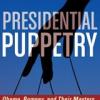

| Online: | |
| Visits: | |
| Stories: |

| Story Views | |
| Now: | |
| Last Hour: | |
| Last 24 Hours: | |
| Total: | |
Martin Luther King’s Legacy Enhanced By Historic Discovery
The Rev. Martin Luther King Jr.’s legacy is forever enhanced by discovery of a 24-minute recording of his first meeting with the national media, a 1962 speech that was the first-ever by a black in the history of the National Press Club.
 To help celebrate King’s birthday Jan. 18, the club unveiled the recording last week in the nation’s capital along with dramatic commentary by other civil rights pioneers.
To help celebrate King’s birthday Jan. 18, the club unveiled the recording last week in the nation’s capital along with dramatic commentary by other civil rights pioneers.
Among them was Simeon Booker, 97, an African-American reporter who arranged the speech as a member of the club in the still-segregated Washington, DC.
King’s speech and the panel’s context provide an inspiring perspective about the unjust and otherwise dire conditions they helped change.
Booker was the club’s first active member and in 1952 became the first black reporter at the Washington Post. Sometimes at great risk to his safety, he went on to report iconic stories about the civil rights movement during his five-decade career writing for the JET and Ebony magazines.
Booker, whose stories for JET about the 1955 torture and lynching in Mississippi of 15-year-old Emmet Till outraged black communities nationally, took the lead in urging the press club’s speakers committee to invite King. The club had never invited even such black luminaries as Thurgood Marshall, Ralph Bunche, Jesse Owens or Jackie Robinson. Booker himself was just the second black press club member. Another joined briefly in the mid-1950s but never became active in the club’s activities.

The club’s program focused heavily on racial conditions at the time of King’s speech and less so on the progress that King helped inspire. Neither did it dwell on King’s horrid and still-suspicious assassination in 1968. The murder and its investigation have been the subject of lingering questions by his family, others in the civil rights community and many other researchers who still question whether the late convicted assassin James Earl Ray acted alone in shooting at King while he was on the balcony of a Memphis motel. The murder prompted riots in cities across the nation and many setbacks in the civil rights-antiwar-labor alliance that King was helping lead at that time.
Those chapters of American history were just a few years removed from 1962 when, as described by the press club’s panel, even the nation’s capital was so segregated that blacks (called “Negroes”) faced great difficulty even finding a place to eat downtown, much less renting a hotel room or obtaining a lecture audience before a racially mixed audience. Legal, medical, dentistry and other national professional bodies were still segregated at that time for the most part.
Last week, Gilbert Klein, a journalism professor at American University and former club president who helped arrange the Jan. 12 program about the 1962 King lecture, took the stage in the same club ballroom where King had spoken. Klein described how the 1962 invitation was so controversial that the club’s speaker committee chairman resigned in protest.
An audio recording was made of the speech and filed away in the Club’s Archives and later transferred to the Library of Congress. No television footage of the speech in its entirety exists. The Club’s History and Heritage Committee recently retrieved the recording and found it is of significant historical value. Coming just days after Dr. King was released from jail in Albany, Ga., the civil rights leader outlined his vision for non-violent protest as the best way to achieve racial equality. The 1962 audiotape of 24 minutes is available below as part of the full panel discussion.
Bloomberg journalist John Hughes described the discovery of King’s long-long audio recording and the creation of last week’s program as the highlight of his year-long term that ended last week as the press club’s president.
Source: http://www.justice-integrity.org/faq/970-martin-luther-king-s-legacy-enhanced-by-historic-discovery


